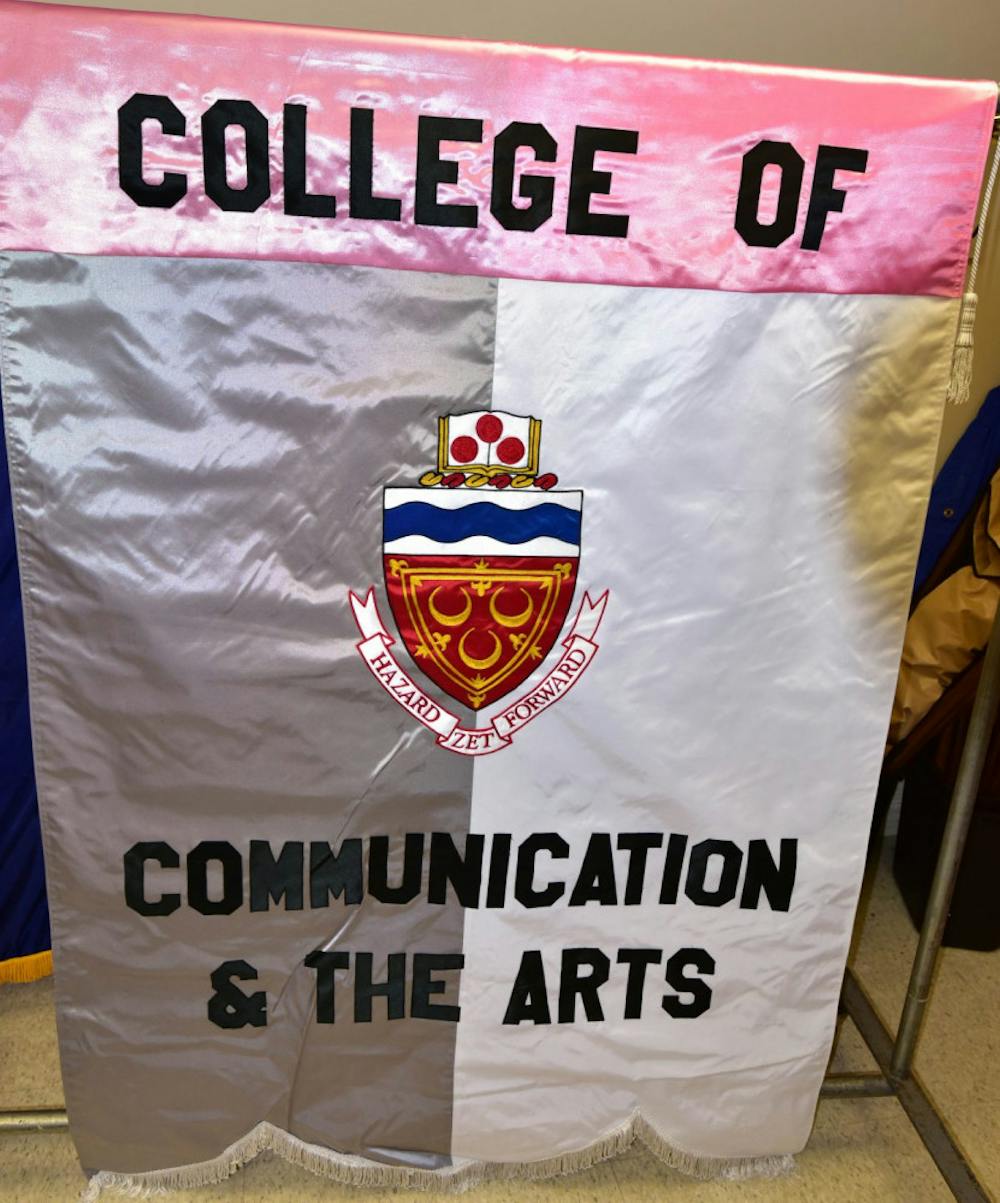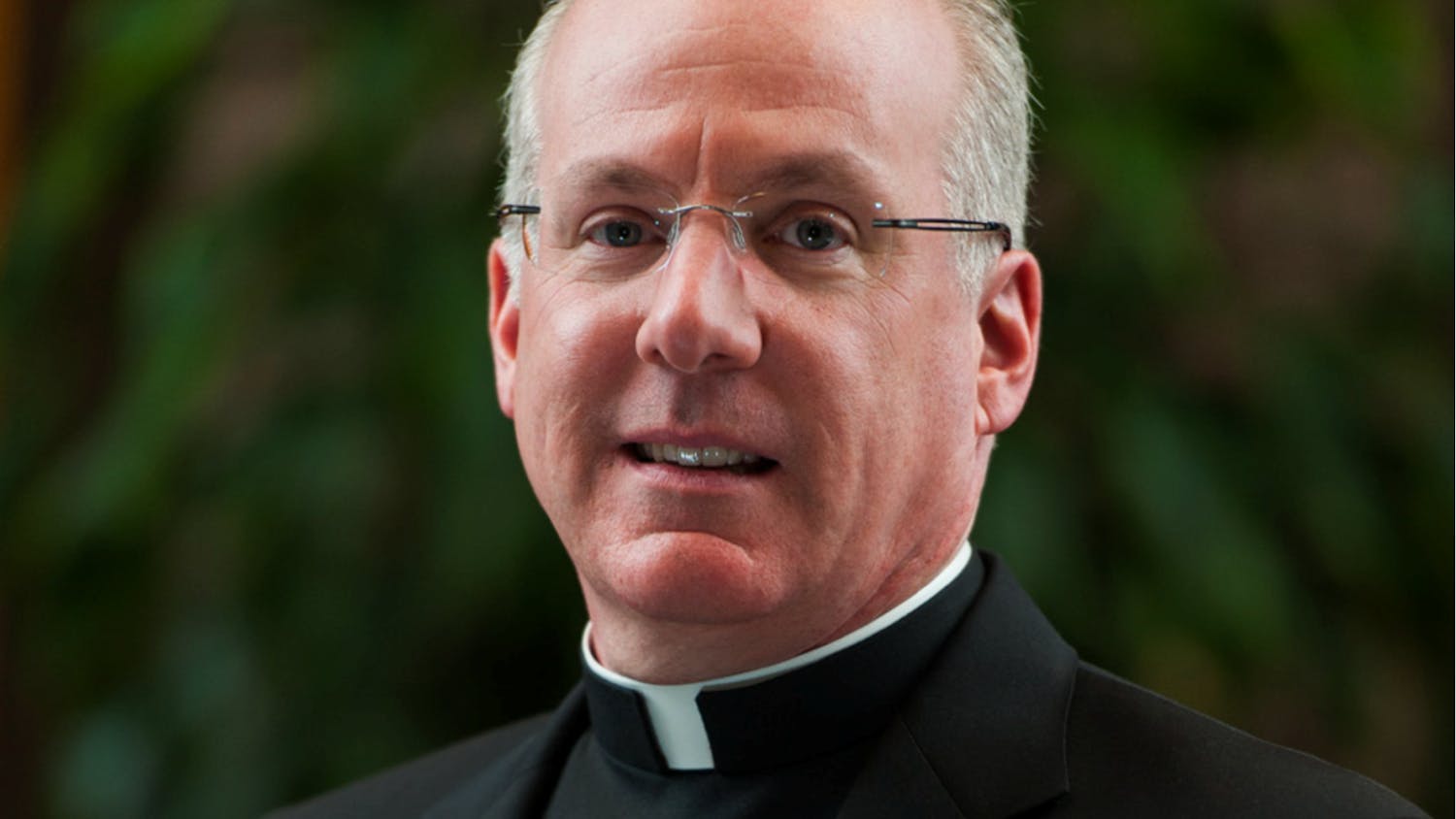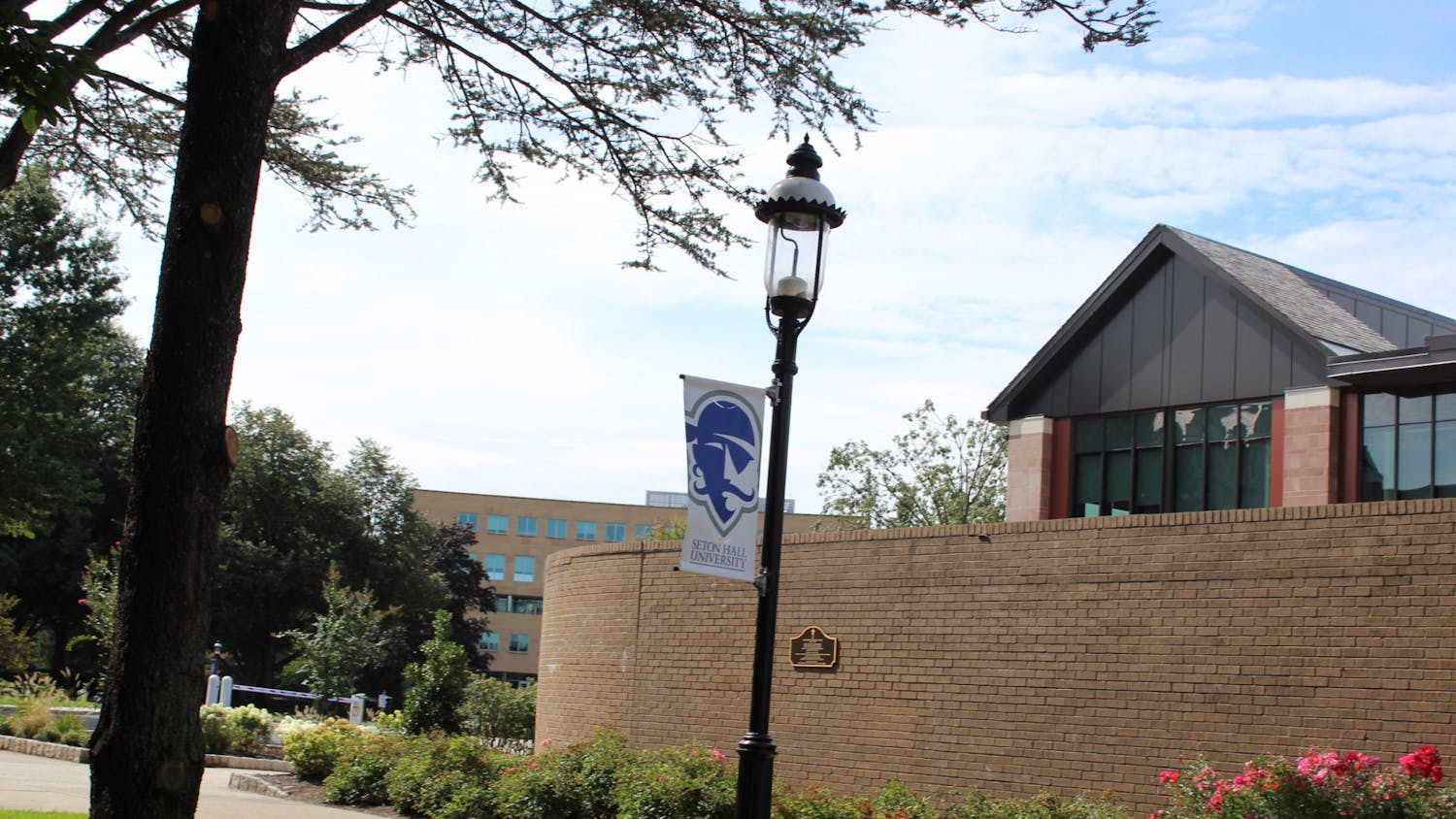As one of the newest colleges at Seton Hall University, the College of Communication and the Arts has seen its share of difficult times.
From the sudden suspension of the Masters of Arts in Strategic Communication and Leadership (MASCL) program in 2016 to the speedy hiring and premature departure of Dr. Renee Robinson as director of the new College’s Center for Graduate Studies, faculty members have become frustrated with a lack of transparency from college administrators.

On July 1, 2016, Robinson became the director of the college’s Graduate Studies program, the day after Dr. Richard Dool, former associate professor of communication and director of Graduate Studies, had suddenly and unexpectedly resigned.
Robinson – who is married to former Provost Larry Robinson – had led an ad hoc review of graduate communication programs in May and June, prior to her becoming a full time tenured faculty member at SHU. The MASCL program was suspended after the review.
This upset many faculty members in the College, as the decisions to conduct the review outside of the regularly-scheduled program review and to suspend the program were made between Robinson and Deirdre Yates, founding dean of the College of Communication and the Arts, without faculty input.
A standard review of the college had been conducted in 2014, and while the results had been backlogged, they were largely positive about MASCL, citing enrollment issues but not stating that the program was on its last legs.
Months down the road in November, the college used a $1.75 million donation from the late alumnus Henry F. Roman to create a new Ph.D. program in Communication, including an endowed faculty chair.
After the suspension of MASCL, the University conducted a grievance process, which spanned parts of the fall and spring semesters. Eventually, a committee of the Faculty Senate found that the suspension of the MASCL program during the summer of 2016 was a violation of the Faculty Guide.
Not even a year after she joined the faculty, Robinson stepped down from her position, effective immediately, on Feb. 16, the same day President A. Gabriel Esteban announced that he was leaving Seton Hall for DePaul University.
It was also announced that she would end her responsibilities in relation to college assessment, faculty development and the search committees for the new graduate communication faculty positions.
Robinson deferred requests for comments to Dean Yates.
“The only update I can offer is that a task force is in place which will combine input from our college’s faculty with market research to inform the direction of our graduate programs,” Yates said via email.
Catherine Zizik, associate professor of communication and a member of the task force, said that she is “hopeful” that the grievance committee findings will be revealed to the department. She said that Seton Hall is a University founded on ethics, and transparency is a pillar of ethics that goes hand-in-hand with accuracy.
The review conducted by Robinson last year told a different story. In her review, Robinson presented the communication graduate programs, especially MASCL, in a negative light.
Despite the complaints of some slighted faculty members, a plan of action was set at a faculty meeting in September: “Be it resolved that: The consultant’s report be immediately shared with the full faculty. An ad hoc committee be formed to assess all MASCL program reviews as expeditiously as possible to make appropriate changes.”
The ad hoc review committee was formed, but it came to the conclusion on Feb. 17, 2017, that this charge could not be fulfilled due to the fact that the ad hoc program review conducted by Dr. Robinson at the request of Dean Yates did not produce a written report. It also found that the way MASCL was treated without faculty input violated the Faculty Guide.
The committee concluded that “MASCL should not have been ‘ended,’ let alone ‘suspended,’ regardless of the ‘report,’ without faculty participation and should be reinstated.”
“No process is ever 100 percent transparent. Especially a work in progress, as is the restoration of the MASCL program,” Dr. Kenneth Hoffman, who was on the ad hoc committee that assessed all MASCL program reviews, said in an email. “It is too early in the process to say if all of the decisions that were made early on were the right ones.”
Hoffman said that there could have been more faculty input in the early stages of the review.
“The decision to terminate the program may not have been the right choice. Termination is a huge step,” Hoffman said. “A program that is some 20 years old may need updating. If there were problems with its structure or curricular emphasis they could have been addressed by faculty, from both inside and outside the program. These gradual steps may have been all that was needed.”
Dr. Msgr. Dennis Mahon, former chancellor of the University and associate professor of communication whose primary teaching responsibilities were in the MASCL program, did not wait until the ad hoc review committee came to a conclusion to file a formal complaint with Seton Hall’s grievance committee. Some might say that Mahon was hasty in his jump to higher authority, but to him, it was necessary, as the provost at the time was Dr. Larry Robinson, Renee Robinson’s husband.
In September, Larry Robinson had announced that he would retire at the end of 2016, though he planned to stay on as a special adviser on the start of the new medical school until June 30, 2017.
“So here was the setup. I have an objection. I said, ‘We moved too fast on this. We ignored the good things.’ So who do I speak to?” Mahon said. “The then-director of the Graduate Center, Dr. Renee Robinson? Okay, and if she doesn’t agree with me, who do I appeal to? The Dean, who just that month hired Dr. Robinson. And if I still have a disagreement with the dean, who does a faculty member appeal to? Dr. Larry Robinson. So it was a tough batting order, and the only option I saw was the faculty grievance procedure.”
According to the Faculty Grievance Committee’s report, issued in March 2017, which several faculty members saw, the investigation into the grievance was put on hold until Larry Robinson had officially retired and interim provost, Dr. Karen Boroff, had stepped into the role to avoid further conflict of interest.
“On Jan. 27, Dr. Boroff sent a letter to Msgr. Mahon regarding the grievance in which she acknowledged shortcomings in the handling of the MASCL program and announced that the program would again be considered suspended rather than terminated,” the report stated. “Dr. Boroff’s letter did not directly address the question of Faculty Guide violations and did not recommend the reinstatement of MASCL in its previous form.”
In his grievance, Mahon specifically cited Faculty Guide 12.2, which states, “The entire full-time faculty of the university shall have primary responsibility for recommending academic policy to the Board of Regents, through the provost and the president, for the following:...review and coordination of all college curricula and academic programs, including continuing education; review and approval of all university degree programs, existing and proposed.”
As Yates is not technically a faculty member, the grievance committee decided that her decision to suspend the program was a clear violation of the Guide.
Furthermore, the grievance committee speculated that the decision to suspend MASCL had little to do with “budgetary constraints.”
“It is hard for the committee to avoid the suspicion that this may have had less to do with budgetary constraints and more to do with a desire to ‘clear the decks’ to give a new faculty member appointed to a position of leadership the space to ‘re-imagine’ Communication Graduate Programs as she saw fit,” the report reads. “This is not how shared governance is meant to function.”
When The Setonian last reported on the suspension of the MASCL program in November 2016, Mahon had said that the program would undergo “re-imagining,” but now he said that “the MASCL program is not coming back,” in its original form. However, elements of the program might be included in a potential healthcare communication program, a possible collaboration with the new medical school.
Mahon said that since the issuance of the grievance committee report, everything has been done strictly by the book, taking extra precautions to ensure proper faculty input - a process he says is very time-consuming - and he has become concerned that with the many changes in administration this school year, the drive might be lost.
“Having been around the university for a long, long time, my quiet apprehension at this point is: new president. New provost. New VP for fundraising, who could well come in and say, ‘We gave you a lot of resources. We gave you three full-time staff. We gave you use of a major donation….What do you have to show for it?’” Mahon said.
Brianna Bernath can be reached at brianna.bernath@student.shu.edu.





